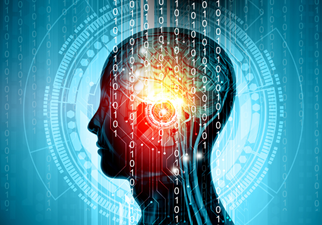The Rise of AI in Recruitment
October 2025

Artificial intelligence (AI) is transforming industries across the globe, and recruitment is no exception. From automated CV screening and chatbots answering job seeker queries, to predictive analytics identifying potential hires, AI is streamlining processes and saving businesses valuable time. On the surface, this seems like a win–win: faster placements, reduced administration, and more efficient hiring however there is a flipside.
At Rural Directions, we see the value in technology, AI included. It can make certain aspects of recruitment easier and more efficient. But we also believe it’s important to remember what AI cannot do.
Recruitment is about people and HI (Human Intelligence). HI involves a range of cognitive abilities, including learning from experience, adapting to new situations, understanding and manipulating abstract concepts, and applying knowledge effectively. It’s about understanding the culture of a business beyond a job description, sensing a job seeker’s motivations beyond their CV, and building relationships that last well beyond the placement. That human connection, intuition, empathy and trust is why the personal aspects can’t be replicated by an algorithm.
For job seekers and employers now is the right time to talk about both the benefits and the downsides of AI in recruitment. Here are some of the risks we see:
- Bias and Discrimination – Even though AI seems objective, it often inherits human biases from the data it’s trained on. A model trained on past hiring data can lead to discriminatory practices.
- Lack of Transparency – Many AI models are not transparent, making it difficult for recruiters to explain how decisions are made. This lack of explainability can create legal risks.
- Over-Reliance on Keywords and Patterns – AI systems often screen CV’s based on keywords, potentially overlooking qualified job seekers with transferrable backgrounds. This can lead to reduced diversity of experience and perspective.
- Data Privacy Concerns – AI tools often require large amounts of personal data such as CV, social media profiles, assessments, and more. Collection and use of this data can lead to privacy violations, raising serious questions about consent and surveillance.
- Loss of Human Touch – The human aspect of recruitment such as intuition, empathy, and relationship building, can be reduced. This can affect the employer’s brand and job seeker experience.
- Limited Contextual Understanding – AI may not grasp context, nuance, or potential. Valid reasons for career breaks may be overlooked resulting in missed opportunities to hire high-potential individuals.
- Cost and Complexity – Implementing and maintaining AI systems in hiring can be expensive and technically complex. If not implemented well AI can cause more harm than good.
The Bottom Line is …
We view AI as a helpful tool, it can take care of repetitive tasks and highlight useful data. But for us, recruitment will always be about relationships first. We know our clients personally and they view us as a partner in their business. We visit their businesses, troubleshoot challenges, and take the time to understand what’s really needed. We listen to job seekers and become invested in their careers.
A key takeaway is it has become glaringly obvious when a job seeker submits a cover letter or CV generated by AI and likewise, when an employer posts a role generated by AI. Utilise and embrace technology but incorporate your own HI as it takes HI to work effectively with AI.
We predict that the pendulum will swing back to a high value proposition for HI in the future. That’s why we’ll always keep people at the centre of what we do. AI may help us in the background, but it can’t shake a hand, build trust, or truly understand the unique dynamics of the primary supply chain.
At the end of the day, the heart of recruitment is human. And that’s where Rural Directions will always stand.
